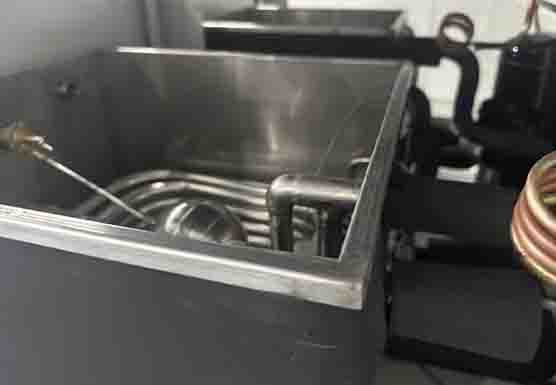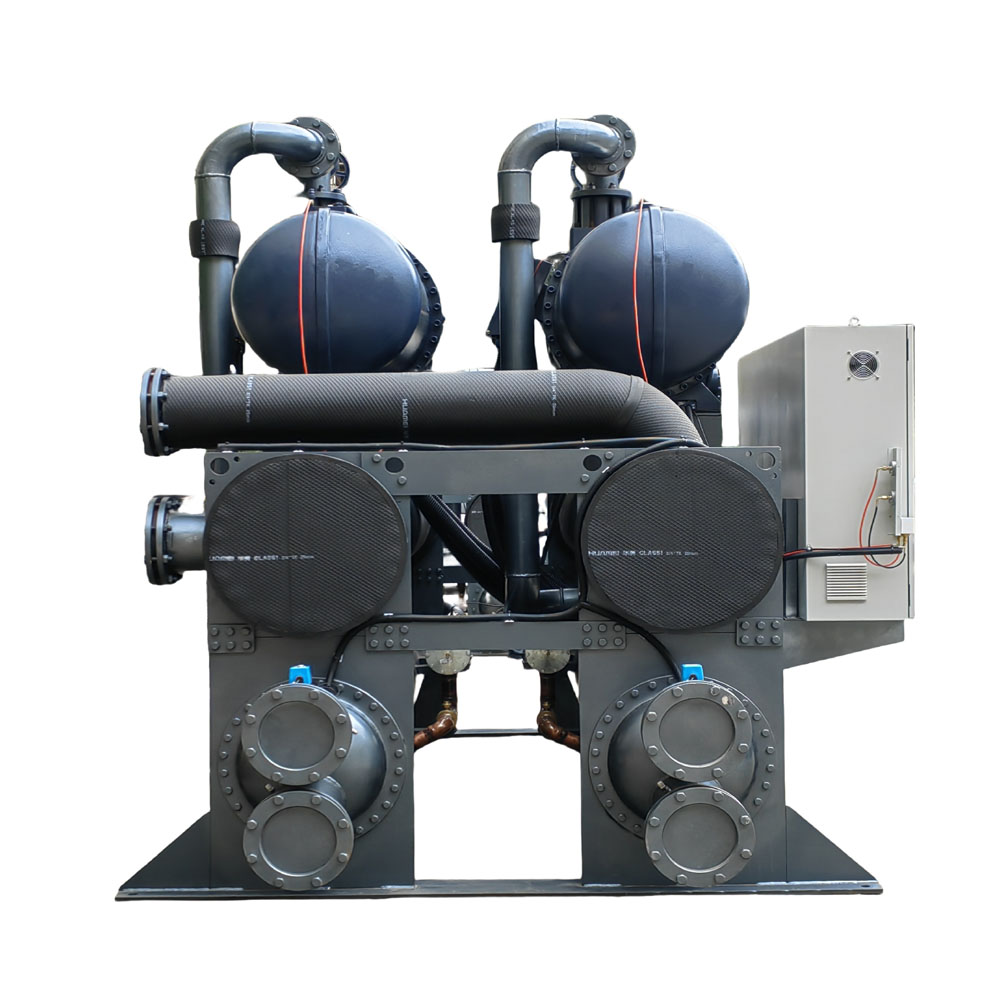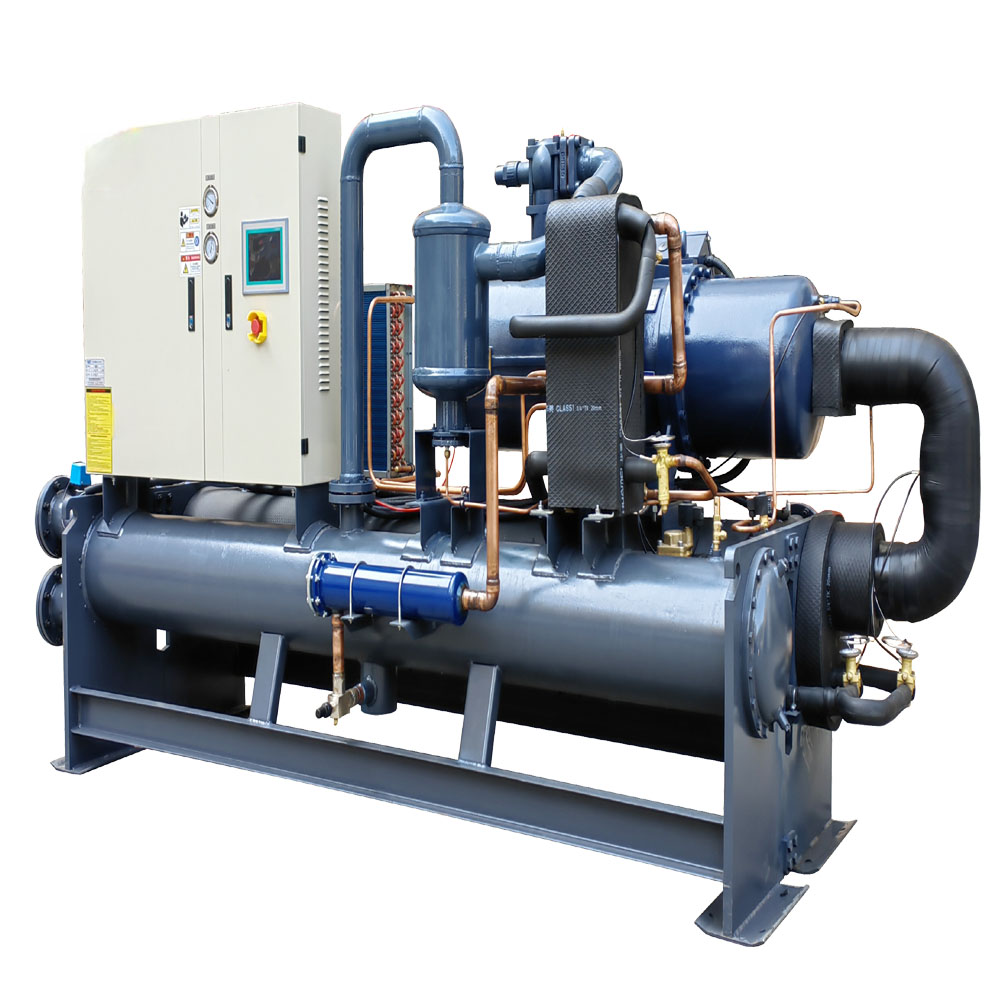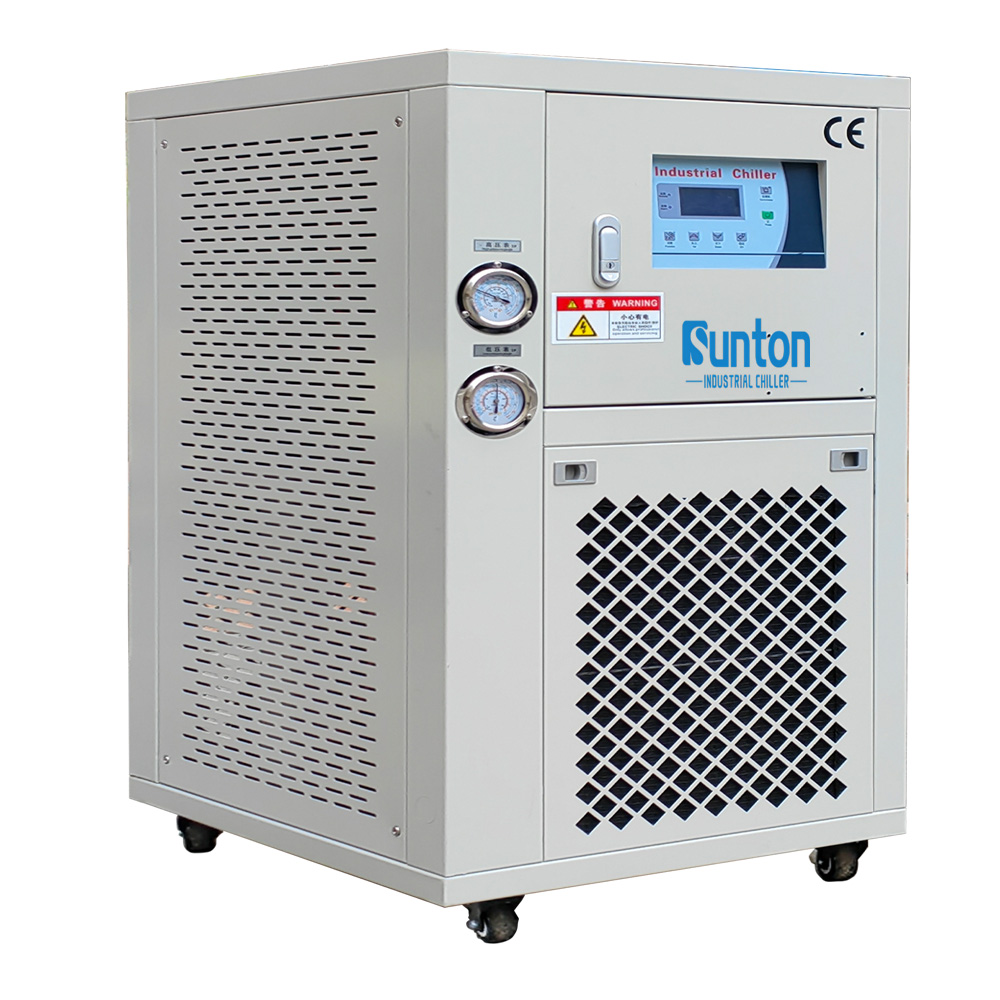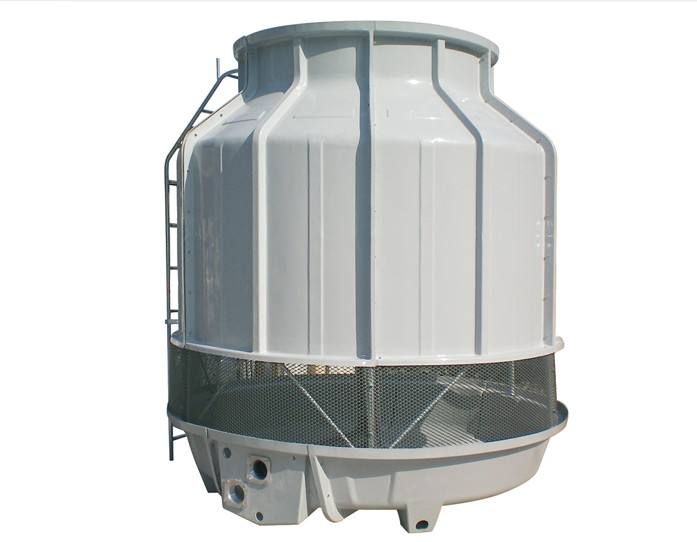-
Dalingshan Industrial Guangdong
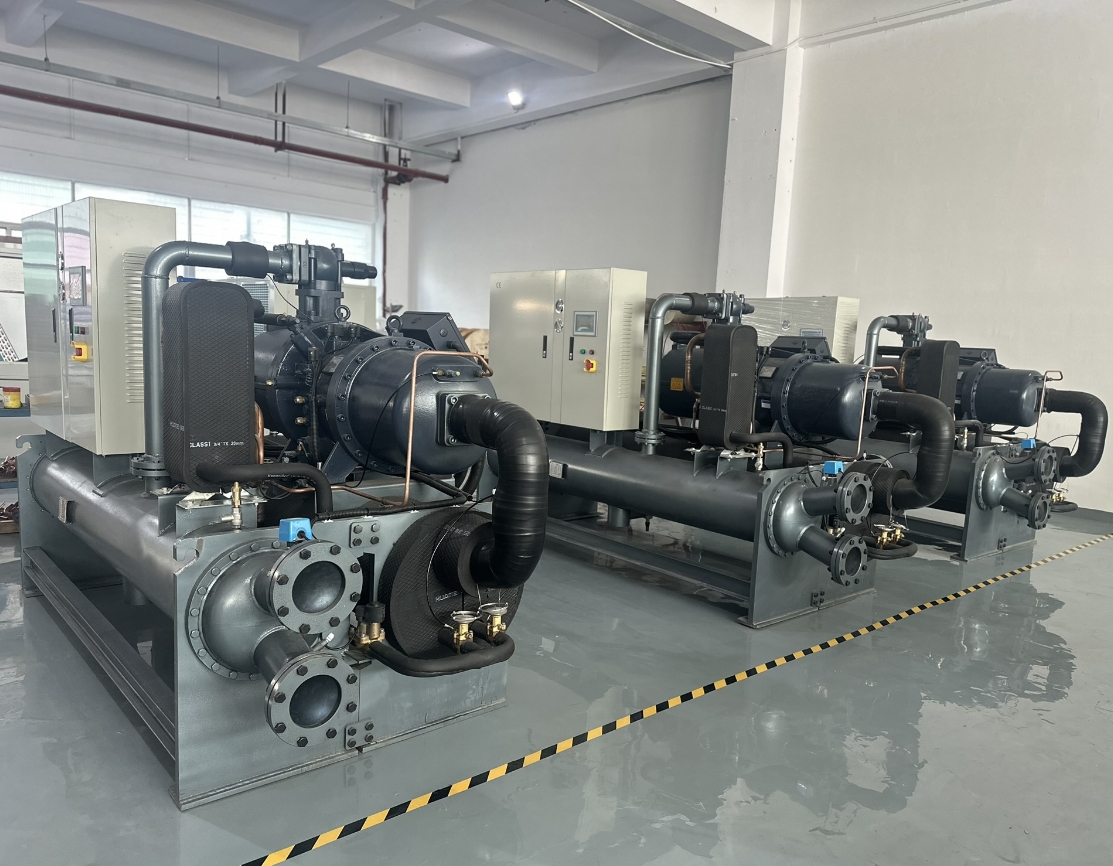
what are closed-loop chiller systems and how do they work
Everything You Need to Know About Closed-Loop Chiller Systems
Are you looking for a reliable and efficient way to manage cooling in your industrial processes? This article dives deep into closed-loop chiller systems, explaining how they work, their advantages, and why they might be the ideal solution for your specific needs. We’ll cover everything from the basics of how these systems operate to their benefits in various industrial sectors. If you’re involved in industries like plastics, machining, food and beverage, or any sector that needs consistent and controlled cooling, this is a must-read for you. Understanding the nuances of closed-loop chillers can significantly impact your operational efficiency and cost savings.
Inhaltsübersicht
1. What is a Chiller and How Does It Work?
At its core, a chiller is a machine that removes heat from a liquid, typically water, and transfers it to another medium, thereby Kühlung the liquid. This cooled liquid, often chilled water, is then circulated to various industrial processes to control water temperature and remove excess heat. In essence, a chiller is the heart of many industrial cooling systems, ensuring that operations run smoothly by preventing overheating. This process is vital for maintaining optimal conditions for various industrial processes across different sectors.
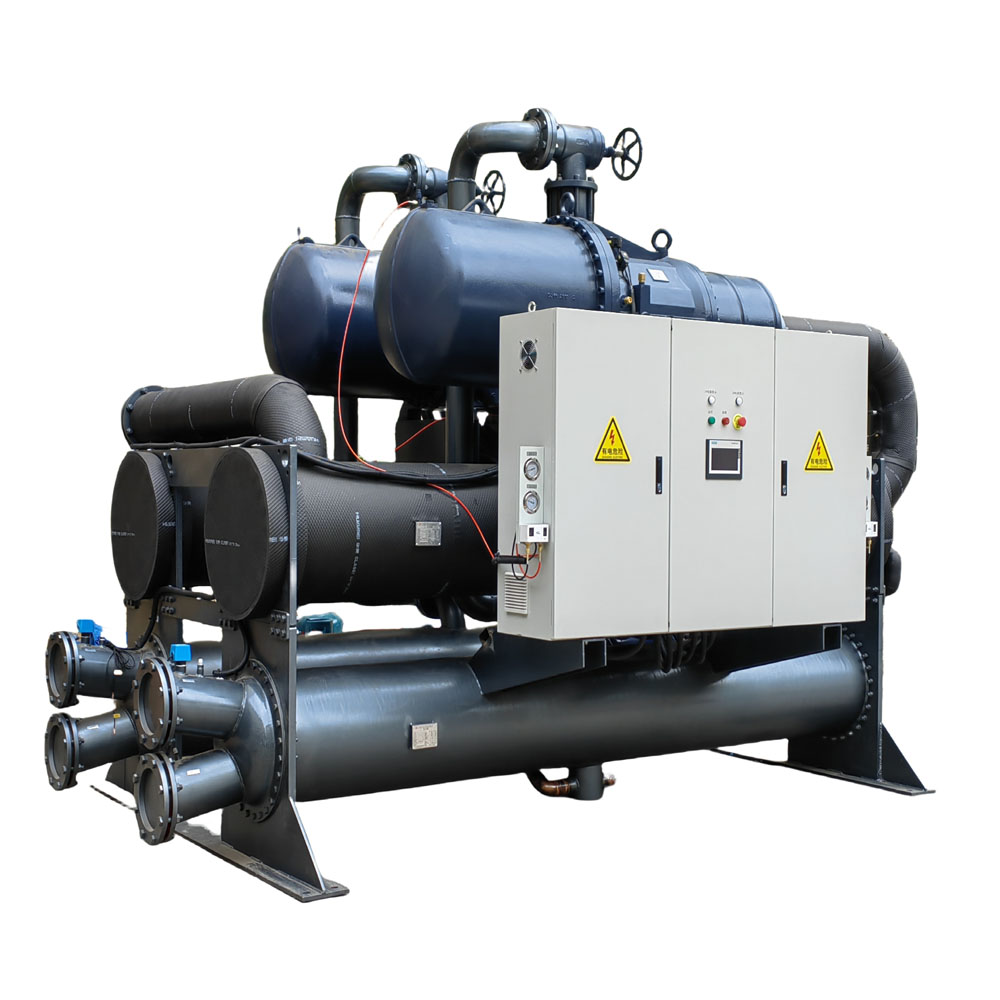
The basic operation of a chiller involves a refrigerant that cycles through four main components: a compressor, a condenser, an expansion valve, and an evaporator. The compressor increases the pressure and temperature of the refrigerant gas. This hot gas then passes through the condenser, where it releases heat and condenses into a liquid. Next, the refrigerant passes through an expansion valve, which reduces its pressure and temperature. Finally, this low-temperature refrigerant enters the evaporator, where it absorbs heat from the liquid it is meant to cool, turning back into a gas and restarting the cycle. The result is a constant supply of chilled water or other coolant ready for Prozesskühlung.
2. What is a Closed Loop System?
A closed loop system is a cooling system where the coolant, typically water or a glycol solution, is continuously recirculated within a contained water circuit. Unlike an open loop system, where water is exposed to the atmosphere, a closed loop system keeps the water or coolant sealed within pipes and heat exchangers. This means that the same volume of water is reused again and again for Kühlung, reducing the need for constant replenishment and minimizing water loss. In essence, it’s a closed system that prioritizes efficiency and conservation.
This approach provides a controlled environment that is less prone to contamination. Because the water isn’t exposed to outside elements, there’s a significantly lower risk of contaminants, such as dirt and debris, entering the cooling system. Closed loop systems don’t require continuous fresh water input, and thus reduce the water und Wasseraufbereitung requirements. This closed-loop design ensures the water quality is maintained, enhancing the performance and longevity of the chiller and overall cooling system.
3. How Does a Closed-Loop Chiller System Work?
A closed-loop chiller system combines the principles of a chiller with the containment of a closed loop system. The system works by circulating a coolant, such as chilled water, through a series of pipes. This coolant flows through the equipment that requires Kühlung, absorbing heat from industrial processes. The coolant, now warmer, then returns to the chiller, where it releases the heat through a heat exchanger. This cooled coolant is then recirculated back through the equipment, starting the process again. This continuous loop allows for consistent and efficient cooling or heating without needing a constant supply of new water.
This closed-loop process is highly efficient because the same coolant is continuously recirculated, making the cooling system very effective and stable. The refrigerant within the chiller absorbs the heat transfer from the coolant, Kühlung it back down and preparing it for another cycle. This method not only saves water but also ensures the cooling process is reliable and consistent, which is crucial for many industrial applications. The closed-loop water approach is essential for maintaining consistent water temperature and reducing operational costs.
4. What are the Key Components of a Closed-Loop System?
A closed-loop system is composed of several essential components that work together to ensure efficient and reliable Kühlung. The main components include the chiller, which is responsible for Kühlung the coolant. Secondly, there are the heat exchangers, which allow for the transfer heat from the warm coolant to the refrigerant. Thirdly, there are pumps that are used to circulate the coolant through the entire water circuit. Additionally, pipes and valves are also required to guide and control the flow of coolant.
Another key component is the water tank, which provides a reservoir for the coolant. The system can also include filters to remove any contaminant and pressure relief valves to protect the system from overpressure. Often, there’s a control system that manages and monitors the water temperature und refrigerant pressure to ensure optimal performance. The precise combination of these components ensures a smooth and efficient Kühlung process, contributing to the reliability of the entire chiller system.
5. Why Should You Choose a Closed-Loop Water System?
Choosing a closed-loop water system offers several advantages compared to open loop systems. Primarily, closed-loop systems are more energy efficiency due to the reduced need for constant water replenishment. They also minimize water usage significantly, making them an environmentally friendly choice. The water within a closed loop system is less susceptible to contamination, meaning it requires less Wasseraufbereitung. This reduces the need for water treatment chemicals and labor associated with managing water quality.
Moreover, a closed-loop water system provides consistent water temperature, which is critical for many industrial processes. The controlled environment within the closed-loop design ensures stable operating conditions and reduces the risk of scale buildup and corrosion, contributing to the longevity of the equipment. When your cooling requirements are stringent and reliability is paramount, a closed-loop water system proves to be a superior solution. Using a closed loop water system also simplifies overall maintenance.
6. What Are the Benefits of Using Closed-Loop Chillers?
The benefits of using closed-loop chillers extend far beyond just basic Kühlung. First and foremost, they offer high energy efficiency. Since the water is recirculated, it takes less energy to cool the coolant compared to systems that rely on fresh water. This energy efficiency can lead to significant cost savings on your energy bills. Additionally, closed-loop chillers dramatically reduce water consumption, making them an environmentally responsible choice, especially in regions where water is scarce or costly.
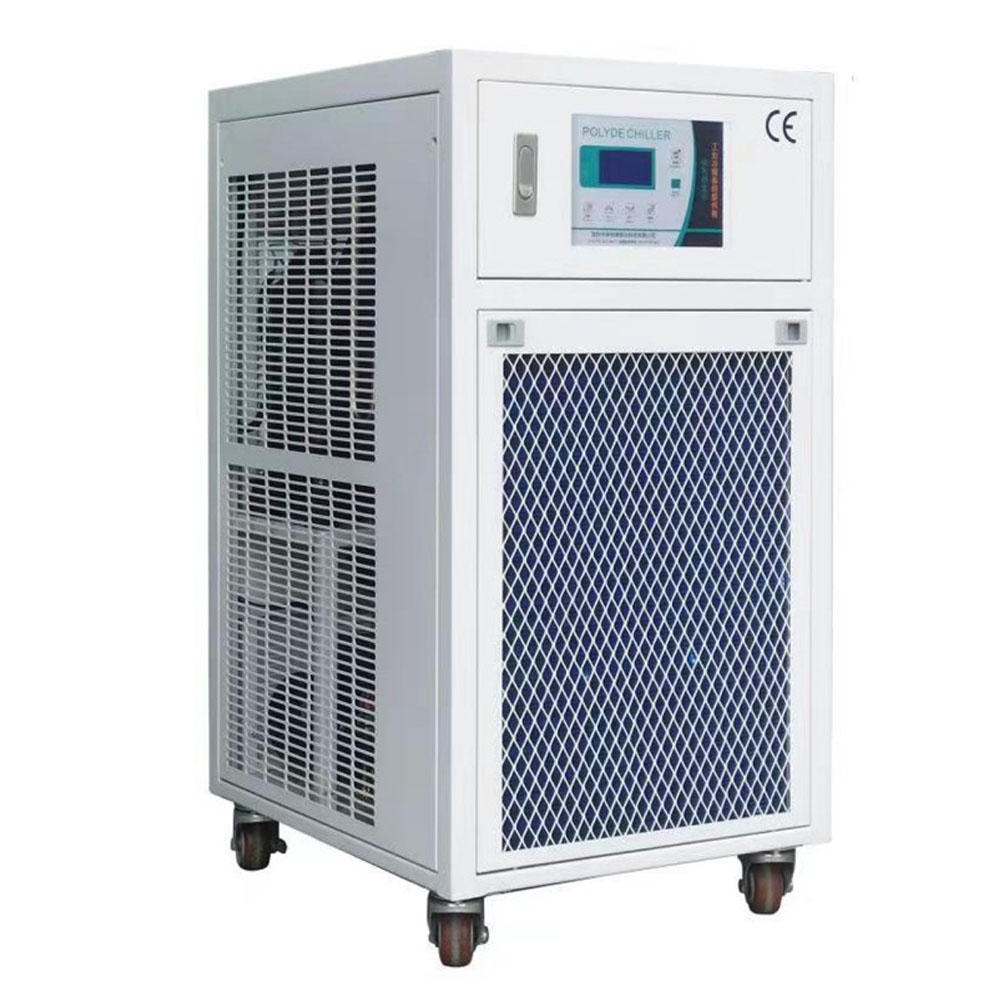
Another significant advantage of closed-loop chillers is that they provide more consistent Kühlung. The closed circuit systems help maintain a consistent water temperature, which is crucial for many industrial operations. This stability can prevent equipment malfunction and improve product quality. Finally, closed-loop chillers require less maintenance as they prevent the build up of scale and corrosion, minimizing the need for frequent and costly cleaning. Choosing a closed-loop chiller is a smart investment that offers both financial and operational benefits.
7. What Are the Different Types of Chillers Available?
When it comes to Kältemaschinen, there are several different types available, each designed for different applications and environments. The two main categories are air-cooled chillers und wassergekühlte Kältemaschinen. Air-cooled chillers use air to dissipate heat, making them suitable for facilities where water conservation is a priority or where a cooling tower isn’t practical. Water-cooled chillers, on the other hand, transfer heat to cooling water, which is then often cooled by a cooling tower. These are generally more efficient for large volumes of water.
Additionally, there are scroll chillers und screw chillers. Scroll chillers use a compressor with a scroll mechanism and are typically used for small to medium-sized cooling needs. Screw chillers, which employ a compressor with a helical screw mechanism, are more commonly found in industrial settings, capable of handling cooling requirements for large volumes of water. Choosing the right type of cooling depends on your specific cooling applications, available space, and the level of Kühlung required. We also provide specialized Glykol-Kühlmaschinen for specific applications requiring precise temperature control.
8. How Does Loop Water Treatment Impact System Performance?
Proper loop water treatment is essential for the efficient and long-lasting performance of any closed-loop system. Without Wasseraufbereitung, minerals and contaminants can build up within the water systems. This can cause scale buildup, corrosion, and microbial growth, all of which hinder heat transfer and reduce the effectiveness of the chiller. Regular Wasseraufbereitung is necessary to keep the ph of the water balanced and to ensure the water quality is optimal. The result of using water treatment chemicals is less frequent maintenance and downtime.
The primary goals of loop water treatment are to remove dissolved solids, control bacteria growth, and prevent corrosion. This may involve the use of water softeners, corrosion inhibitors, and biocides. Regular monitoring of the water chemistry is vital to ensure the water is suitable for Kühlung. Untreated systems are often prone to problems that result in reduced efficiency and costly repairs. Effective loop water treatment ensures that the chiller system operates at peak performance, which not only saves you money on energy but also protects your investment for years to come.
9. What are the Advantages of Closed Loop HVAC Systems?
Closed loop HVAC systems provide several significant advantages over systems that rely on open cooling towers. By eliminating the direct contact between the cooling water and the outside air, closed loop HVAC minimizes the risks associated with waterborne pathogens, such as legionella. This makes them safer for large facilities where people are present. Also the reduced risk of contaminant exposure leads to more hygienic and healthier environments. These systems use the same recirculating water system, so the need for water usage is reduced significantly.
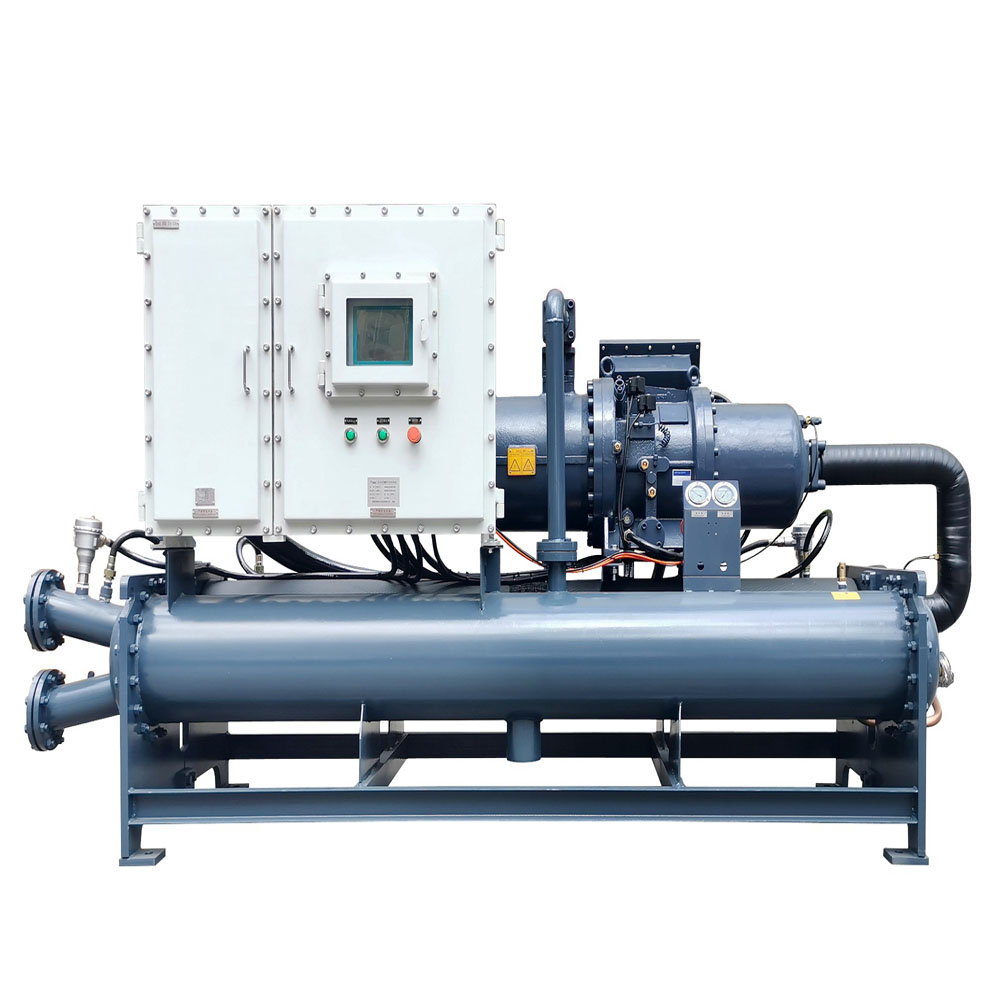
Furthermore, closed loop HVAC systems offer superior temperature control because the cooling medium is isolated from outside conditions, resulting in less fluctuation in water temperature and a more consistent performance. This is particularly beneficial in environments that require precise temperature control. In facilities with strict air quality requirements, closed loop HVAC systems can reduce the amount of dust or particles that would otherwise enter through open cooling towers, and offer a cleaner and more controlled type of cooling. These benefits make closed loop HVAC an excellent choice for both industrial and commercial applications.
10. Where Are Closed-Loop Water Chiller Systems Used?
Closed-loop water chiller systems are utilized across a broad range of industries due to their efficiency and reliability. In the plastics and rubber industry, they are used to cool molds and extruders. In the machining industry, they are used to control the temperature of cutting fluids and machine tools. In the food and beverage industry, chillers use is prevalent for Prozesskühlung, ensuring that water used for production and cleaning is always at the proper temperature. The chemical and pharmaceutical industry also relies heavily on them for precise temperature control in manufacturing processes.
Additionally, the electronics industry uses closed-loop cooling systems to manage the heat transfer from sensitive equipment and electronics. The laser industry uses them to keep laser equipment at consistent temperatures. Printing industries rely on them to control the temperature of inks and rollers. In the medical industry, Kältemaschinen are essential for cooling MRI machines and other medical devices, and in laboratories and research institutions, they provide temperature control for various experiments. Data centers also rely heavily on closed-loop Kaltwassersätze to maintain optimal operational conditions. We also specialize in industrial chillers for electroplating. Our wide selection of wassergekühlte Kältemaschinen und air-cooled systems are a good fit for various uses. We are a leading Industrie-Wasserkühlmaschine manufacturer.
Häufig gestellte Fragen
What is the main difference between a closed loop system and an open loop system?
The main difference is that a closed loop system recirculates the same coolant in a contained environment, whereas an open loop system exposes the coolant to the atmosphere and requires constant replenishment.
How does a closed-loop system help with water conservation?
A closed-loop system significantly reduces water usage by recirculating the water, minimizing the need for fresh water input, and also reducing the increase in water used.
What are some common industries that use closed-loop chillers?
Closed-loop chillers are common in plastics, machining, food and beverage, chemical, pharmaceutical, electronics, laser, printing, medical, laboratories, and data center industries.
What is the role of Wasseraufbereitung in a closed-loop system?
Water treatment is crucial for preventing scale buildup, corrosion, and microbial growth, ensuring the cooling system operates efficiently.
Can I use any type of cooling fluid in a closed-loop system?
Yes, While water is the most commonly used coolant, other fluids like glycol solutions can be used in closed-loop systems for specialized applications.
What kind of maintenance does a closed-loop chiller system require?
Closed-loop chiller systems require regular inspections, chemical testing, filter replacement, and periodic cleaning to maintain optimal efficiency and performance.
Wichtigste Erkenntnisse
- Closed-loop Kältesysteme recirculate the coolant, which helps to conserve water und energy.
- These systems provide consistent water temperature which is important for many industrial processes.
- Closed-loop systems reduce the risks of corrosion, scale buildup, and contamination.
- Proper Wasseraufbereitung is crucial to maintaining the efficiency and longevity of these systems.
- Closed-loop chillers are used in a broad range of industries.
- Choosing the right type of chiller and system design is crucial to meet your cooling needs.
For all of your industrial Kühlung needs, consider the efficiency and reliability of a closed-loop water chiller system. Our expert team is ready to help you determine the best chiller solution for your specific application. We manufacture geson chiller solutions and specialize in both air and water cooled options. Contact us today to learn more about how we can improve your cooling process. You may be interested in our industrial chillers for agriculture or industrial chillers for textile industry. We also offer a range of water-cooled screw central chillers. If your specific use case involves an explosion risk, consider our specialized anti-explosion chillers. If you need a shell and tube heat exchanger, we can help with that too.



